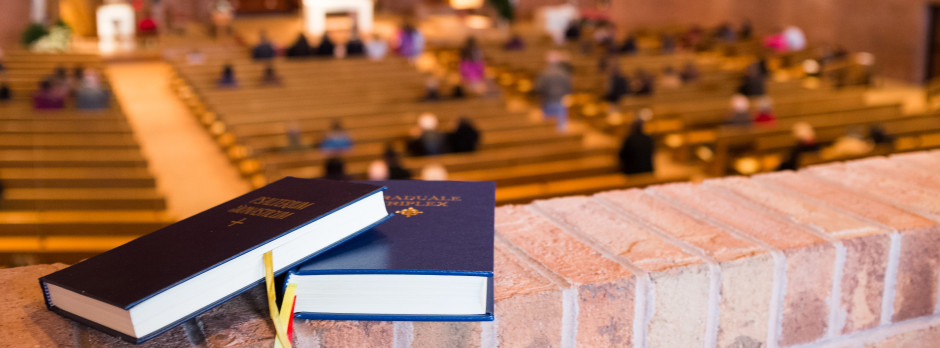In the Extraordinary Form calendar, this past Sunday was Quinquagesima, for which the appointed communion antiphon is this first-mode gem:
Manducavérunt, et saturáti sunt nimis, et desidérium eórum áttulit eis Dóminus: non sunt fraudáti a desidério suo.
They ate, and were satisfied in abundance, and the Lord gave them all that they craved: they were not cheated of their desire.
The text is adapted from Ps 78(79):29. This particular Psalm is a long exhortation to Israel recounting their history of suffering and redemption, sin and repentance, and God’s justice and mercy, written to instruct future generations “that they should not be like their fathers, a stubborn and rebellious generation, a generation whose heart was not steadfast, whose spirit was not faithful to God” (v. 8). As adapted for this antiphon, verse 29 is entirely appropriate as a meditation while receiving the Eucharist, and at first blush it seems wholly consolatory.
That impression is tested when one reads the next few verses of the Psalm:
[30] But before they had sated their craving,
while the food was still in their mouths,
[31] the anger of God rose against them
and he slew the strongest of them,
and laid low the picked men of Israel.
[32] In spite of all this they still sinned;
despite his wonders they did not believe.
…
[36] But they flattered him with their mouths;
they lied to him with their tongues.
[37] Their heart was not steadfast toward him;
they were not true to his covenant.
[38] Yet he, being compassionate,
forgave their iniquity,
and did not destroy them;
he restrained his anger often,
and did not stir up all his wrath.
[39] He remembered that they were but flesh,
a wind that passes and comes not again. (RSV)
There is consolation there, yes, but also a rebuke to our waywardness. Our points for meditation are twofold: first, the Eucharist, which is Christ himself, is that which we crave, which satisfies us in abundance when we eat it, and our God who loves us has not cheated us of our desire. Second, on the threshold of Lent, we recall that we have still sinned, disbelieving despite God’s wonders, flattering him with our mouths and not remaining true to his covenant, yet God is compassionate to us and forgives our iniquity when we turn back to him.
These two streams of reflection meet in the discipline of fasting we are about to embrace, in which our denial of earthly food is meant to remind us of our dependence on our daily and supersubstantial bread, the Bread of Life. Let us thus end in consolation, as the God whom we desire has promised to accompany us on our way, and he keeps his promises.

At the Lord’s Table
In the Extraordinary Form calendar, this past Sunday was Quinquagesima, for which the appointed communion antiphon is this first-mode gem:
The text is adapted from Ps 78(79):29. This particular Psalm is a long exhortation to Israel recounting their history of suffering and redemption, sin and repentance, and God’s justice and mercy, written to instruct future generations “that they should not be like their fathers, a stubborn and rebellious generation, a generation whose heart was not steadfast, whose spirit was not faithful to God” (v. 8). As adapted for this antiphon, verse 29 is entirely appropriate as a meditation while receiving the Eucharist, and at first blush it seems wholly consolatory.
That impression is tested when one reads the next few verses of the Psalm:
There is consolation there, yes, but also a rebuke to our waywardness. Our points for meditation are twofold: first, the Eucharist, which is Christ himself, is that which we crave, which satisfies us in abundance when we eat it, and our God who loves us has not cheated us of our desire. Second, on the threshold of Lent, we recall that we have still sinned, disbelieving despite God’s wonders, flattering him with our mouths and not remaining true to his covenant, yet God is compassionate to us and forgives our iniquity when we turn back to him.
These two streams of reflection meet in the discipline of fasting we are about to embrace, in which our denial of earthly food is meant to remind us of our dependence on our daily and supersubstantial bread, the Bread of Life. Let us thus end in consolation, as the God whom we desire has promised to accompany us on our way, and he keeps his promises.